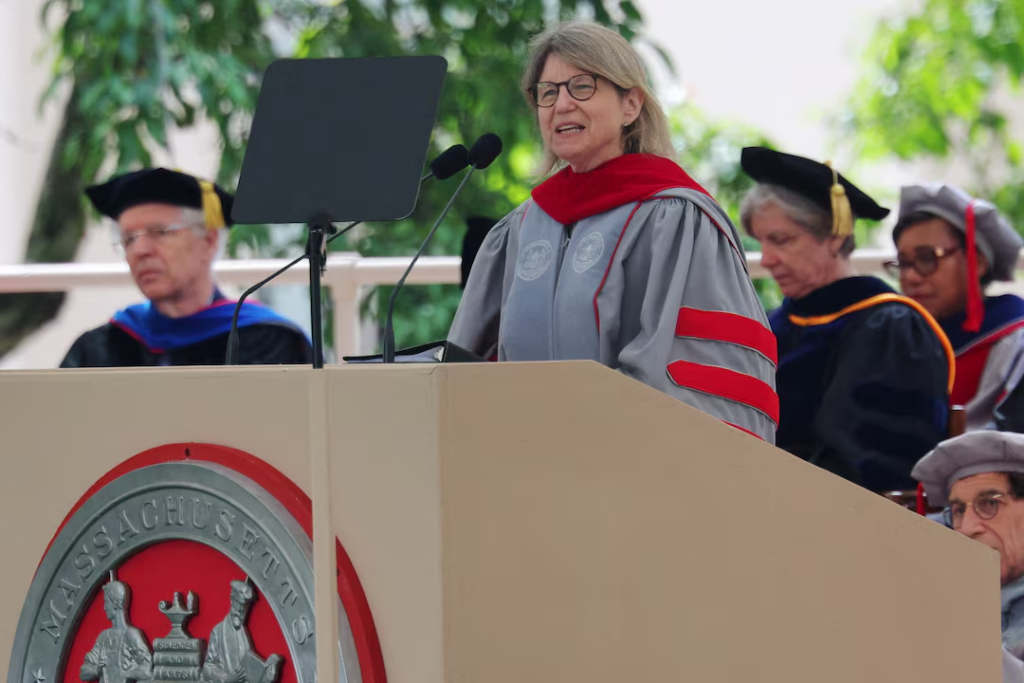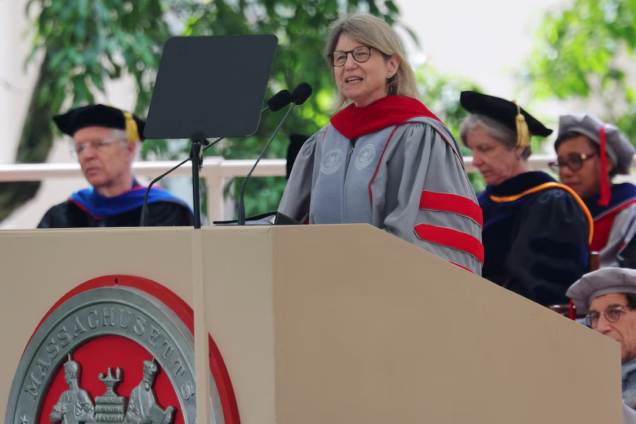The Massachusetts Institute of Technology's incoming freshman class this year dropped to just 16% Black, Hispanic, Native American or Pacific Islander students compared to 31% in previous years after the U.S. Supreme Court banned colleges from using race as a factor in admissions in 2023, the elite engineering school said.
The proportion of Asian American students in the incoming class rose from 41% to 47%, while white students made up about the same share of the class as in recent years.
MIT administrators said the statistics are the result of the Supreme Court's decision last year to ban affirmative action, a practice that many selective U.S. colleges and universities used for decades to boost enrollment of underrepresented minority groups.
Harvard and the University of North Carolina, the defendants in the Supreme Court case, argued that they wanted to promote diversity to offer educational opportunities broadly and bring a range of perspectives to their campuses.
The conservative-leaning Court ruled that their race-conscious admissions practices violated the U.S. Constitution's promise of equal protection under the law.

"The class is, as always, outstanding across multiple dimensions," MIT President Sally Kornbluth said in a statement about the Class of 2028.
"But what it does not bring, as a consequence of last year’s Supreme Court decision, is the same degree of broad racial and ethnic diversity that the MIT community has worked together to achieve over the past several decades."
This year's freshman class at MIT is 5% Black, 1% American Indian/Alaskan Native, 11% Hispanic and 0% Native Hawaiian/Pacific Islander. It is 47% Asian American and 37% white. (Some students identified as more than one racial group).
By comparison, the past four years of incoming freshmen were a combined 13% Black, 2% American Indian/Alaskan Native, 15% Hispanic and 1% Native Hawaiian/Pacific Islander. The previous four classes were 41% Asian American and 38% white.
U.S. college administrators revamped their recruitment and admissions strategies to comply with the court ruling and try to keep historically marginalised groups in their applicant and admit pool.
Kornbluth said MIT's efforts had apparently not been effective enough, and going forward the school would better advertise its generous financial aid and invest in expanding access to science and math education for young students across the country to mitigate their enrollment gaps.
Latest Stories
-
Ken Ashigbey, Joyce Aryee and others grace MTN’s Festival of 9 Lessons and Carols
4 hours -
Obuasi Cricket Academy celebrates excellence at end-of-year awards night
5 hours -
WASSCE: Scanning of objective answer sheets to start tonight – WAEC
5 hours -
Education Minister hasn’t prioritised WAEC – Nortsu-Kotoe
6 hours -
Bawumia meets Manifesto Committee members to express appreciation
6 hours -
To chocolate, Ghana’s pride by Bioko
7 hours -
Chartered Institute of Bankers, Ghana, confers Honorary Fellow status on Victor Yaw Asante
7 hours -
BoG marks end of year with Thanksgiving Service
7 hours -
Ghana’s Next Sports Minister: The Debate Begins
7 hours -
Election 2024: NPP advised to be mindful of the reasons being ascribed to their election lost
8 hours -
GNFS urges Ghanaians to prevent fires during yuletide
8 hours -
Report tobacco users who smoke publicly – FDA advises
8 hours -
Abdallah Ali-Nakyea elevated to Associate Professor at UG School of Law
9 hours -
Kick2build commissions 5 libraries in Klo Agogo, donates school supplies
9 hours -
Slim and Fit Ghana donates to kids at Motherly Love Orphanage in Kwabenya
9 hours

